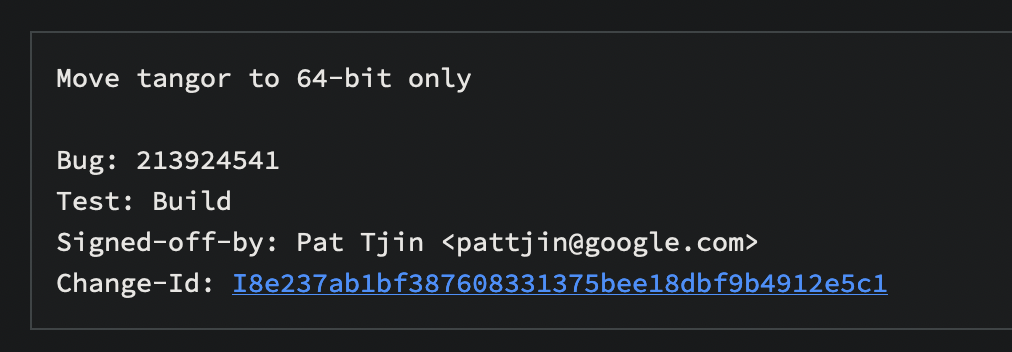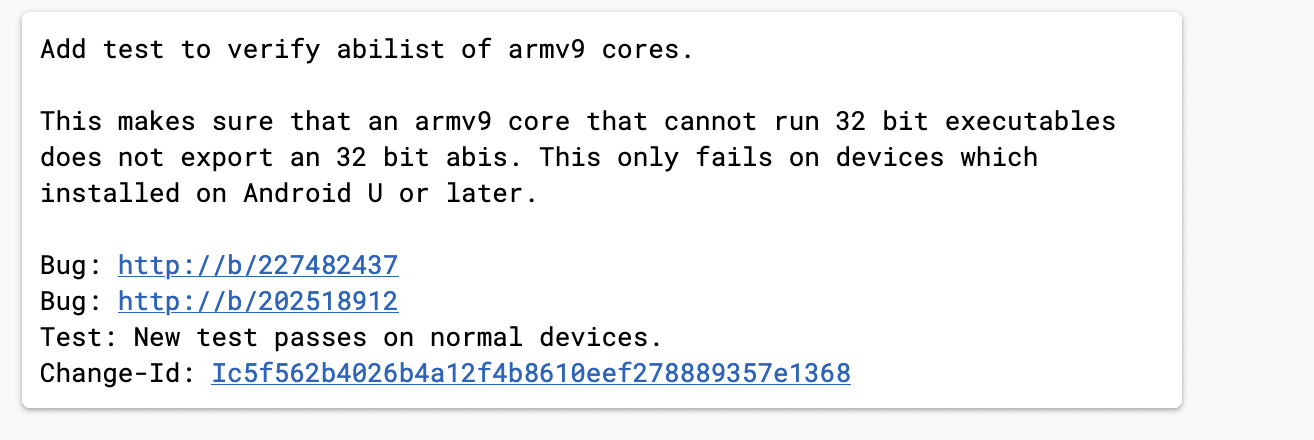Last week, Google officially released Android 13 and was the first to push the system update to Pixel devices, and other OEMs will follow the latest system and push updates to their devices later this year.

Recently, Mishaal Rahman found an interesting code in the Android 13 code repositorysubmit – “Move tangor to 64-bit only”. According to this commit, it appears that Google’s upcoming Pixel tablet will only support 64-bit Android apps.
Tangor is the codename for the Google Pixel tablet, which Google announced at its I/O conference in May this year, and will be officially on sale in 2023.

In addition to finding that 32-bit apps are not supported on the Pixel tablet coming next year, Mishaal Rahman also found anothersubmit(above), which mentions that 32-bit apps cannot be run on devices with Android U (Android 14) or higher. This commit also suggests that 64-bit-only support may become a regular feature on Android 14. It also seems to convey that next year’s Pixel tablet is more of a first test to drop 32-bit apps early.
At present, the application ecosystem of Google Play is very complete in supporting 64-bit, and any application written entirely in Java or Kotlin has automatically obtained 64-bit compatibility from the system. And Google has stipulated as early as 2019 that as long as natively developed applications are listed on Google Play, they need to provide 64-bit versions, so now all applications basically have 64-bit versions.
As for hardware, every SoC today also supports 64-bit applications, and some of these flagship SoCs are actually reducing their ability to run 32-bit code. ARM, which dominates SoCs, also hopes that the flagship SoC design in 2023 will completely drop support for 32-bit applications.
In contrast to Google’s competitors, since Apple controls the software and hardware of the iPhone/iPad, Apple can better manage the devices it manufactures, so the iPhone/iPad has only supported 64-bit applications since 2017.
Due to the particularity of the Chinese market, Google’s 64-bit application requirements only apply to applications in Google Play. At present, there are still a large number of 32-bit applications in the domestic market that have not been eliminated, and even some applications still only support 32-bit, and are not optimized and compatible for 64-bit. However, domestic stores have also begun to gradually ban the use of only 32-bit applications, but the pace is still relatively slow. If Android 14 really no longer supports 32-bit applications next year, domestic developers and developers must hurry up.
#Android #longer #support #32bit #apps #year #OSCHINA
Android will no longer support 32-bit apps next year – OSCHINA
